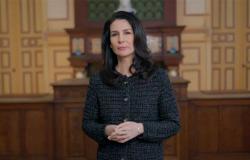The gas market represents a major strategic pillar for the Algerian economy, positioning the country as a key player in energy supply in the sub-region. Algerian energy policy, focused on the exploitation and export of natural gas, reflects a long-term vision aimed at consolidating its position on the world market, particularly in Europe.
Recent analyzes of the European gas market reveal a significant upward trend. The TTF gas hub The Netherlands records an increase of almost 6% on supply contracts for January, reaching $48.25 per megawatt hour. This dynamic can be explained in particular by cyclical and structural factors which are reshaping the European energy landscape.
Weather forecasts for 2025 predict a particularly harsh winter in Europe, contrasting with the mild temperatures of the previous year which led to a notable drop in imports. This climate perspective, combined with growing geopolitical tensions, strengthens the strategic position of alternative suppliers to Russian gas.
Uncertainty hangs over the renewal of the Russian-Ukrainian gas transit contract, which expires on December 31, 2024. The categorical refusal expressed by Ukraine suggests a possible repeat of the energy crisis at the end of 2022. This situation is all the more more worrying that Austria has just announced the suspension of its Russian gas supplies.
Faced with these challenges, Algeria is emerging as a credible and stable alternative for the European market. Its geographical proximity, coupled with a developed gas infrastructure capable of producing 30 million tonnes of LNG annually, gives it a significant competitive advantage. Last year's performance, with the export of 14 million tonnes of LNG to Europe, demonstrates Algeria's reliability and capacity to meet the growing needs of the European market.
Other potential suppliers face specific constraints. The United States must contend with soaring inflation and growing domestic opposition, while Qatar, traditionally oriented toward the Asian market, is struggling to honor its existing commitments despite rising prices.





